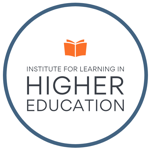24th International Symposium
Enhancing Learning Outcomes in Higher Education
June 7-9, 2023
Copenhagen, Denmark
Submit a book chapter for double-blind review.
Participate in the book writing symposium in wonderful Copenhagen.
Get your work published worldwide by Libri Publishing Ltd., Oxfordshire, UK.
Submit Book Chapter
Submit your book chapter for double-blind review no later than March 31, 2023. Download and follow the SUBMISSION GUIDELINES when you write, format and submit your chapter.
Register
If your book chapter is accepted by the review board, register online for the symposium and pay your symposium fee. Deadline April 30, 2023.
Participate
Participate in the symposium in wonderful Copenhagen with international colleagues, June 7-9, 2023. Authors collaborate to finalise our book for publication.
Contribute a chapter to the book ENHANCING LEARNING OUTCOMES IN HIGHER to be published worldwide by Libri Publishing Ltd., Oxfordshire, UK.
Then join fellow authors for an inspiring and productive symposium in Copenhagen, Denmark.
All authors meet June 7-9, 2023 and work collaboratively to review, edit, and finalise the book manuscript for publication.
This is a unique and collaborative academic symposium format devised by the Institute for Learning in Higher Education.
ALL participants are guaranteed a double-blind reviewed chapter in a worldwide publication.
SUBMISSION DEADLINE
000 days 00 hours 00 minutes 00 seconds
It was a truly amazing event and I came away with the feeling that every academic should experience this kind of conference format.Richard Bale, Brunel University
It was the best experience of my teaching career and I hope to replicate it someday.Tracy Bhoola, York University
An amazing experience to attend such a great symposium, lovely memories and a lovely company really.Zeinab Younis, British University Egypt
I had never attended an organization like this before and surely I have learned a lot.Ayse Görgün, Cukurova University
I have been to many conferences and symposiums but this was the ultimate. I am afraid that everything I attend now that is not like LiHE will be a disappointment.Eurika Jansen van Vuuren, University of Johannesburg
Fantastic organisation, fantastic people and fantastic place – and a great result pending!Martin Eley, Birmingham City University
The way the sessions were organised was fantastic and gave us great direction over the three days. That and the continuous stream of calories via the cakes, fruit, smoothies and coffee in addition to the wonderful choice of food venues meant even us weird vegans stayed fully energized.Jeffrey Lewis, University of Cardiff
I had an amazing time and it was everything that I hoped it would be, and that’s before you take into account the wonderful food, trips and weather that we were treated to.David Watson, Hong Kong Polytechnic University
Call for book chapters
We call upon teachers, researchers and relevant professionals in higher education to submit a BOOK CHAPTER for inclusion in the book ENHANCING LEARNING OUTCOMES IN HIGHER EDUCATION to be published worldwide by Libri Publishing Ltd., Oxfordshire, UK.
About the book, we’re going to publish worldwide
We are to publish a high-quality book worldwide with the title ENHANCING LEARNING OUTCOMES IN HIGHER EDUCATION.
We invite faculty members at higher education institutions to write a BOOK CHAPTER showcasing an example of an enhanced learning outcome at the university level and participate in the symposium in Copenhagen, Denmark – where authors collaborate to finalise the book manuscript for publication.
Why Learning Outcomes are Important in Contemporary Higher Education
Worldwide, higher education is being transformed, whereby long-established traditions in learning and teaching are challenged by a complex of often competing strands of influences. As part of this flux, in many western and many western-influenced countries, higher education has undergone a transformative philosophical shift, resulting in institutions in higher education becoming increasingly corporatised. One result of this shift has been a change in emphasis from the education processes toward perceiving education as more of a measurable product.
One commensurate focus of that product lies in the anticipated student learning outcomes (Harden, 2002, p. 151), which are increasingly aligned to the broader university achievement measures, namely graduate attributes. Under this scenario, learning outcomes represent a sea change in higher education philosophy, whereby quality measurements, as determined through assessment processes, are increasingly foregrounded.
Higher education is shifting from being supply-driven – faculty determines what is optimal for their students – towards being demand-driven – the job market and society more broadly determine the most optimal for students (Nygaard & Holtham, 2009) in a more student-centred environment. Learning outcomes, which “…are statements of what a learner is expected to know, understand and be able to demonstrate at the end of a learning experience” (Adams, 2006, p. B2.3-1), appear to be symptomatic of this movement toward demand-driven higher education.
In higher education, the validity of learning outcomes is multifaceted, covering both learners and teaching staff, and sitting alongside institutional, prospective employers and society perspectives:
- For students, learning outcomes signal which competencies they are supposed to attain in their ongoing study.
- For teaching staff, the learning outcomes indicate what competencies need to be facilitated throughout their course curricula (Nygaard and Holtham, 2009).
- From an institutional perspective, learning outcomes allow for measurable student achievement comparison between programmes.
- Beyond the institution, learning outcomes signal to prospective employers what competencies they can anticipate from graduates.
- Learning outcomes have a sector-wide influence in terms of accreditation on a national scale, indicating the foci of any given higher education institution. Indeed, stated learning outcomes are increasingly becoming legally mandated in many higher education sectors to ensure quality assurance and compliance.
- In line with market-driven philosophy, learning outcomes can allow for measurable and discernible competencies that integrate well with contemporary higher education’s product-driven perspectives.
Against this backdrop, we invite chapter proposals showcasing theory-informed pedagogical methodologies that enhance espoused learning outcomes effectively and, in so doing, demonstrate how such learning outcomes are mapped to explicitly espoused institutional graduate attributes.
References
- Adam, S. (2006). An introduction to learning outcomes. In Froment, E., Kohler, J., Purser, L. and Wilson, L. (Eds), EUA Bologna Handbook, Raabe, Berlin. (p. B2.3-1).
- Harden, R. M. (2002). Learning outcomes and instructional objectives: is there a difference? Medical teacher, 24(2), 151-155.
- Nygaard, C., & Holtham, C. (2009). Learning outcomes – politics, religion or improvement? In Nygaard, C., Holtham, C. & Courtney, N. (Eds.) Improving students’ learning outcomes. (pp. 1-14). Copenhagen Business School Press.
The book we write together at the 24th international LiHE symposium will showcase prime examples of teaching and learning practices which led to ENHANCING STUDENTS’ LEARNING OUTCOMES IN HIGHER EDUCATION.
YOUR SUBMISSION
Submit a 13-15 page chapter documenting your case of ENHANCING LEARNING OUTCOMES IN HIGHER EDUCATION. Follow the SUBMISSION GUIDELINES, which are downloadable from this website.
Your case must be clear and descriptive. Think of your chapter as a formative description, enabling readers of the BOOK to learn from your example and try to mirror your enhanced learning outcome methodology.
The deadline for submitting your CHAPTER for double-blind review is March 31, 2023.
REVIEWING YOUR CHAPTER
Reviewers will refer to the following questions when reviewing your CHAPTER:
Does the chapter show a clear case of enhancing learning outcomes in higher education?
- Writing tip: describe clearly how your teaching and learning practice helped enhance students’ learning outcomes. Follow academic conventions and be to the point. Think of your case as one that has to be of inspiration to faculty members in higher education when they work with enhancing students’ learning outcomes in their context.
Is the case methodology compelling and concise?
- Writing tip: describe your methodology so compelling and concise that readers can implement a similar practice in their university settings.
Is the chapter informed by relevant learning theory?
- Writing tip: see to that your case of enhancing students’ learning outcomes is informed and reflected within the framework of a learning theory such as behaviourism, cognitivism, constructivism, or similar. The book we publish must contribute to the field of learning theories.
Is the chapter rooted in learning outcome-related methodology?
- Writing tip: root your case of enhancing students’ learning outcomes in relevant learning outcome-related methodology such as active learning, problem-based learning, inquiry-based learning, etc. The book we publish must be anchored in appropriate methods.
Join us in Wonderful Copenhagen, Denmark, June 7-9, 2023
Symposium fee
- Includes
- + symposium participation in Copenhagen, June 7-9, 2023
- + daily breakfast at the symposium site
- + daily lunch at nearby restaurants
- + daily dinner at nearby restaurants
- + coffee, tee, water, freshly pressed fruit juices ad lib at the symposium site
- + social program
- + publication fee
- + 1 year membership of LiHE authors' club
- + 45% off any LiHE BOOK purchase during your membership year
- + 3 copies of the BOOK when published
As a participant, you are guaranteed a publication in a rigorously reviewed international book from a recognised British publishing house.
Libri Publishing Ltd. is a member of the Publishers Licensing Society.
ABOUT THE PUBLISHER
Libri Publishing Ltd., Brunel House, Volunteer Way, Faringdon, Oxfordshire, SN7 7YR, England. Libri is a publishing company that provides innovative, high-quality, challenging publications. It is a highly responsive publishing service for authors and client organisations. Libri was established in February 2009 by a team of colleagues who had worked together for a dozen years in professional and academic publishing, knowledge transfer, and the management and delivery of blended learning projects. Between them, Libri’s senior managers have over fifty years of experience in media organisations, higher education, and consultancy. Their extensive expertise includes authorship, design, editing, printing and publishing, IT and e-learning pedagogy, and the design and provision of continuing professional development programmes. Libri supports its core expertise with a broad-based supply chain of long-established and highly skilled sub-contractors.
Libri Publishing Ltd. is the publisher of the following books written by members of the Institute for Learning in Higher Education:
- Teaching Creativity – Creativity in Teaching
- Postgraduate Education. Form and Function
- Beyond Transmission – Innovations in University Teaching
- Simulations, Games, and Role-Play in University Education
- Learning in Higher Education – Contemporary Standpoints
- Case-Based Learning in Higher Education
- Quality Enhancement of Teaching and Learning in Higher Education
- Student Engagement. Identity, Motivation, and Community
- Learning Space Design in Higher Education
- Technology-Enhanced Learning in Higher Education
- Innovative Teaching and Learning in Higher Education
- Learning to Research – Researching to Learn
- The globalisation of Higher Education
- Assessing Learning in Higher Education
- Teaching and Learning Entrepreneurship in Higher Education
- New Innovations in Teaching and Learning in Higher Education
- Learning-Centred Curriculum Design in Higher Education
- Innovative Teaching and Learning Practices in Higher Education
- E-learning 1.0, 2.0, and 3.0 in Higher Education
- Teaching and Learning Innovations in Higher Education
- Active Learning in Higher Education. Student Engagement and Deeper Learning Outcomes
RESEARCH ACCREDITATIONS AND DISSEMINATION
All book chapters are double-blind, reviewed by the international review board of the Institute for Learning in Higher Education, collegially peer-reviewed by the symposium participants, and reviewed by the editorial board. The book undergoes a rigorous review process to secure a publication of the highest standard.
Libri Publishing Ltd. is a member of the Publishers Licensing Society.
Published by Libri Publishing Ltd., your chapter will have worldwide dissemination through international distribution agreements. To secure bibliographic information and research library coverage, the book is catalogued by CIP/The British Library, COPAC, WorldCat(r), ProQuest LibCentral, Ebrary, and EBSCOHost.
The book is sold to the public through respected services like Amazon.com (and regional branches thereof), Barnes & Noble, Fishpond, WHSmith, Betterread, Saxo, Dymocks, Bokus, Exlibris, Booktopia, and multiple other leading online bookstores. Check THIS LINK to see an example of coverage of our book.
IMPORTANT DATES
March 31, 2023: Deadline for submitting BOOK CHAPTERS for double-blind review.
April 10, 2023: Notification of review decisions. Accepted authors receive an invitation to proceed.
April 30, 2023: Deadline for registration & payment (accepted authors only).
May 1, 2023: Revised BOOK CHAPTERS submitted for the symposium
May 6, 2023: The book manuscript is circulated to all participating authors.
June 7-9, 2023: Registered authors meet in Wonderful Copenhagen for the 24th International Symposium.
Autumn 2023: The book ENHANCING LEARNING OUTCOMES IN HIGHER EDUCATION is published worldwide by Libri Publishing Ltd., Oxfordshire, UK.












